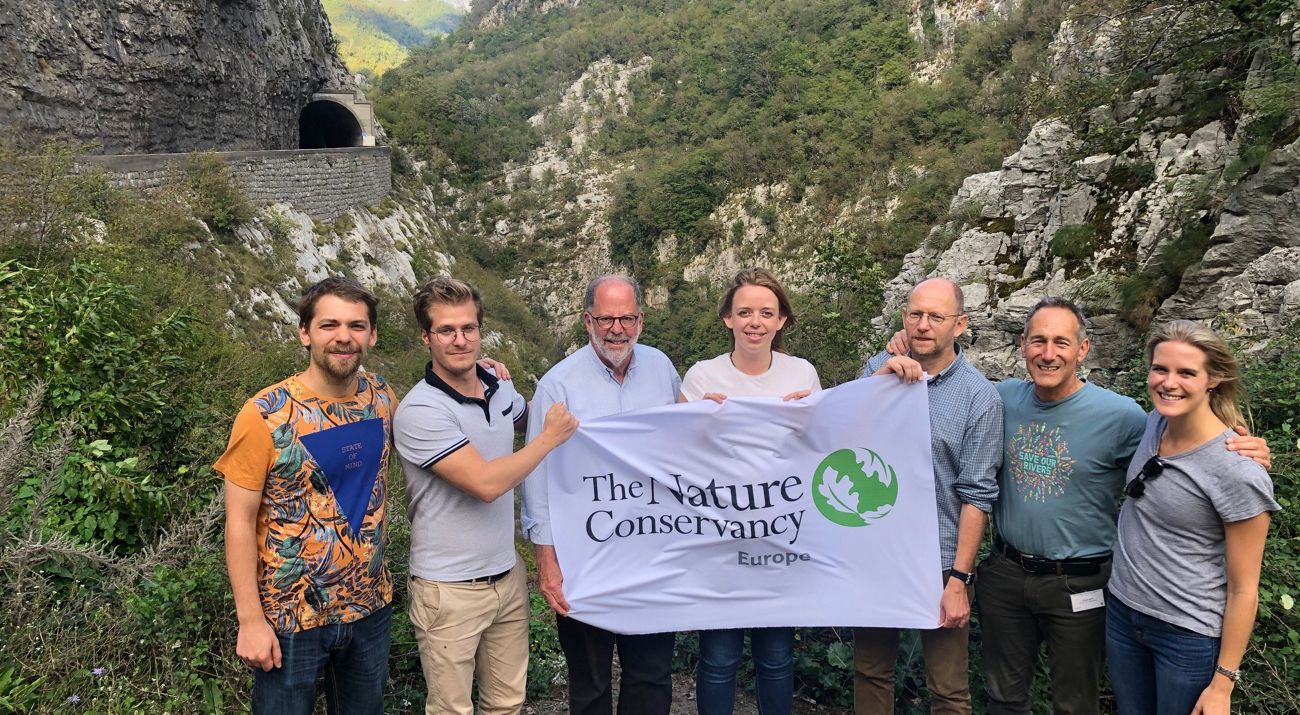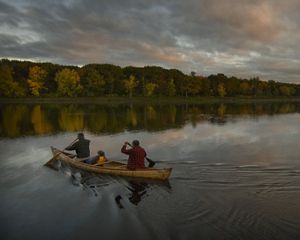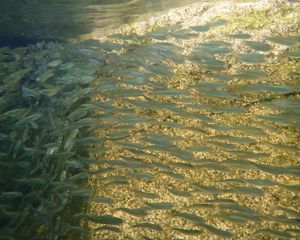Connecting Rivers, Connecting Worlds
A Maine scientist is helping shape river restoration in Europe.
Joshua Royte didn’t expect to see protests when he arrived at the joint European Rivers Network and Dam Removal Europe conference in Avranches, France, but when he looked up from his seat on the bus, he saw a sea of people and signs in front of the conference center.
As they shouted and beat drums, the crowd was chanting in protest of the local dam removals. Royte, TNC in Maine's senior conservation scientist, knew dam removals were controversial, but he’d never been greeted this way before.
There wasn’t a clear path to get off the bus, so two local police forces had been called in to create a corridor through the protestors to the conference center.
Organized in part by the World Fish Migration Foundation, which is supported by The Nature Conservancy, World Wildlife Fund and several other European organizations, Dam Removal Europe has helped remove four European dams, and influenced dam removal policy changes in Finland, Estonia, Latvia, France and Spain. On the agenda for this conference was a visit to two dam removal project sites nearby, including Europe's largest removal project to date.
A Universal Challenge
In both Europe and the U.S., communities have grown fond of the water bodies held back by dams. Many of these impoundments serve as swimming holes, fishing destinations—even water sources for local fire departments. This was certainly the case in France where residents upstream in the Selune Valley had gotten used to the river in its impounded state. Yet, dams pose one of the greatest threats to healthy, resilient rivers and the natural and human communities that rely on them. In Southeast Europe, where TNC is focusing our European river restoration work, the urgency of this problem is especially pronounced: there are currently 3,000 new dam projects planned for some of the continent's most biodiverse and free-flowing rivers.
"Although there are a lot of threats to healthy rivers in Europe, there are also many people and groups doing really important and effective work," says Josh. "This includes Dam Removal Europe, the European Union, individual country leadership and now, The Nature Conservancy."
Collaborating Across Continents
Josh’s river work in Europe and around the globe began in Maine when TNC joined the Penobscot Indian Nation and five NGOs as well as federal and state agencies to restore fish passage to over 2,000 miles of the Penobscot River with an innovative and successful project that attracted attention from around the world. The knowledge that Josh brought to and gained from restoration of the Penobscot was soon recognized by partners inside and outside TNC.
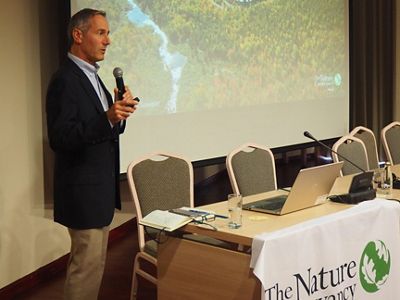
The TNC Coda fellowship program gave Josh an added opportunity to work with European colleagues at a critical time and place for rivers in Europe. EU leadership was developing a conservation framework to direct member states over the next ten years and TNC had an opportunity to help shape the outcome.
That's why Josh and TNC Europe colleagues met with EU officials in Brussels as they were creating the EU Biodiversity Strategy. Our work on rivers and relationships with partners, including in the EU government, cemented TNC's status as a trusted advisor in the region and led directly to the establishment of a legally-binding goal of restoring 25,000 kilometers (15,534 miles) of river by 2030.
Quote: Andras Krolopp
It is a once in a lifetime experience to see what TNC has contributed to shaping the future of the EU’s nature conservation at such a scale.
"The new EU Biodiversity Strategy is one of the most progressive, ground-breaking documents produced by the EU for decades," says Andras Krolopp, The Nature Conservancy's senior policy advisor in Europe. "It is a 'once in a lifetime' experience to see what TNC has contributed to shaping the future of the EU’s nature conservation at such a scale."
Downstream Effects
To help other interested nations and organizations pursue dam removal and river restoration in their communities, the TNC Europe team worked with colleagues from Maine and other parts of North America to create and publish a number of resource guides that provide critical insights about dam removal and river restoration.
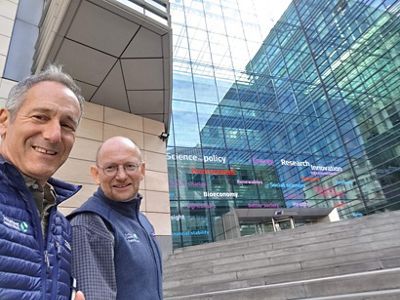
“Being able to work across geographic boundaries to leverage the science, knowledge, systems thinking and expertise from the U.S. to protect and restore healthy rivers and plan for clean energy in Southeastern Europe is TNC at its best,” says Marianne Kleiberg, Regional Managing Director, Europe.
Finding Common Ground in a Dam Removal Controversy
Back on the bus in Avranches, Josh reflected on his experiences with the Penobscot River, where there was a great deal of outreach to local people impacted by the coming changes. There were many meetings: town meetings, informational meetings—even door-to-door outreach. Building relationships with local people who were respected in their communities was critical to success in Maine. Some people remained upset, but felt listened to, and others came to understand the project and, in many cases were very happy with the results.
In France, Josh was pleased to see the conference organizer make time to talk with the demonstrators and hear their concerns. Even better, a representative for the demonstrators was invited to address the conference. And when pro-dam protesters met them at the first dam site, the two sides broke into small discussion groups, took pictures—and ended up having lunch together. One protester reached out to Josh later, sending him pictures and inviting him to visit his town and family!
Many of the lessons learned in Maine—building coalitions and relationships, listening to and including a range of viewpoints, and showing patience and partnership—are now making a difference in Europe and beyond.
And this is just the beginning. Over the next two years, thanks to our generous supporters, Josh will continue to help TNC Europe as they work to make the EU river restoration goal a reality.
